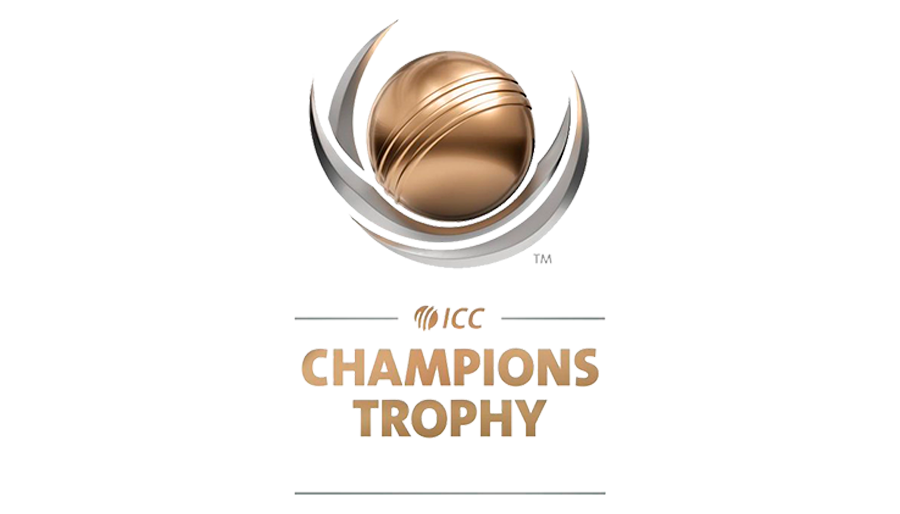The 2006 ICC Champions Trophy marked a significant chapter in the history of the One Day International (ODI) cricket tournament, thereby enhancing the longstanding legacy of this esteemed event. The event, which took place in India from October 7th to November 5th, involved the participation of ten teams, notably including renowned ODl cricket powerhouses such as Australia, India, South Africa, and England. In contrast to preceding iterations of the Champions Trophy, the 2006 edition embraced a preliminary stage featuring a round-robin format, culminating in semi-final matches and ultimately the finals. The tournament was distinguished by its exceptionally fierce matches and by engendering enduring moments that were indelibly etched in the chronicles of cricket history.
The present iteration of the Champions Trophy was distinguished by an aura of expectation and theatricality. This event unveiled emerging talents in the realm of international cricket, concurrently affording seasoned players the opportunity to cement their esteemed positions. Australia, led by the admirable Ricky Ponting, demonstrated their prowess and emerged triumphant by prevailing over the West Indies in a captivating final encounter held in the city of Mumbai. The 2006 occurrence held great academic importance due to its remarkable capacity to captivate a substantial number of spectators, successfully filling arenas and establishing commendable records in television viewership. The aforementioned statement serves as evidence of the tournament’s increasing importance within the cricketing realm, as well as its ability to captivate worldwide sporting interest.
ICC Champions Trophy 2006 Venue
The ICC Champions Trophy of 2006 was conducted at four impressive sites within India. The aforementioned venues encompassed the Punjab Cricket Association Stadium situated in Mohali, the Sardar Patel Stadium located in Ahmedabad, the Sawai Man Singh Stadium in Jaipur, and the esteemed Brabourne Stadium in Mumbai.
Each of these stadiums possesses distinctive allure and historical significance, thereby augmenting the ambience of the sporting events. The preliminary and group round matches were equitably allocated across these venues, providing varied conditions and obstacles for the participating teams.
The Brabourne Stadium in Mumbai assumed a notable significance by serving as the venue for One Day International matches following an 11-year interruption, rendering it a highly anticipated site for both players and fans alike.
In the transition to the knockout stages of the tournament, the cities of Mohali and Jaipur were selected as the venues to host the highly anticipated semi-final matches. These aforementioned venues served as witnesses to highly intense cricket matches where the competing teams fiercely contested to secure a position in the final stage of the tournament.
The culminating event ultimately took place at the Brabourne Stadium in Mumbai. The grand finale of the tournament served as a unifying event for the elite members of the cricketing fraternity, taking place within the illuminated confines of one of India’s most revered cricket stadiums.
ICC Champions Trophy 2006 Team List
| Team | Captain |
|---|---|
| Australia | Ricky Ponting |
| Bangladesh | Habibul Bashar |
| England | Andrew Flintoff |
| India | Rahul Dravid |
| New Zealand | Stephen Fleming |
| Pakistan | Younis Khan |
| South Africa | Graeme Smith |
| Sri Lanka | Mahela Jayawardene |
| West Indies | Brian Lara |
| Zimbabwe | Prosper Utseya |
The ICC Champions Trophy of 2006 witnessed the active involvement of ten esteemed international teams. The teams were accompanied by their designated captains considering their countries: Ricky Ponting for Australia, Habibul Bashar for Bangladesh, Andrew Flintoff for England, Rahul Dravid for India, Stephen Fleming for New Zealand, Younis Khan for Pakistan, Graeme Smith for South Africa, Mahela Jayawardene for Sri Lanka, Brian Lara for West Indies, and Prosper Utseya for Zimbabwe.
Every participating team demonstrated a distinctive amalgamation of expertise, aptitude, and tactics, resulting in an captivating cricket competition. The captains, by virtue of their distinctive leadership skills and sportsmanship, played pivotal roles in providing guidance to their respective teams amidst the highly competitive environment. The tournament served as a genuine manifestation of the essence of cricket, exemplifying not only the variegation of the cricketing nations but also the worldwide harmony fostered by the sport.
ICC Champions Trophy 2006 Schedule and Results
| Date | Match Details | Results |
|---|---|---|
| 7 October 2006 | Sri Lanka 302/8 (50 overs) v Bangladesh 265/9 (50 overs) | Sri Lanka won by 37 runs |
| 8 October 2006 | Zimbabwe 85 (30.1 overs) v West Indies 90/1 (14.2 overs) | West Indies won by 9 wickets |
| 10 October 2006 | Sri Lanka 285/7 (50 overs) v Zimbabwe 141 (42.3 overs) | Sri Lanka won by 144 runs |
| 11 October 2006 | Bangladesh 161 (46.3 overs) v West Indies 164/0 (36.4 overs) | West Indies won by 10 wickets |
| 13 October 2006 | Bangladesh 231/6 (50 overs) v Zimbabwe 130 (44.4 overs) | Bangladesh won by 101 runs |
| 14 October 2006 | West Indies 80 (30.4 overs) v Sri Lanka 83/1 (13.2 overs) | Sri Lanka won by 9 wickets |
| 15 October 2006 | England 125 (37 overs) v India 126/6 (29.3 overs) | India won by 4 wickets |
| 18 October 2006 | West Indies 234/6 (50 overs) v Australia 224/9 (50 overs) | West Indies won by 10 runs |
| 21 October 2006 | England 169 (45 overs) v Australia 170/4 (36.5 overs) | Australia won by 6 wickets |
| 26 October 2006 | India 223/9 (50 overs) v West Indies 224/7 (49.4 overs) | West Indies won by 3 wickets |
| 28 October 2006 | West Indies 272/4 (50 overs) v England 276/7 (48.3 overs) | England won by 3 wickets |
| 29 October 2006 | India 249/8 (50 overs) v Australia 252/4 (45.4 overs) | Australia won by 6 wickets |
| 16 October 2006 | New Zealand 195 (45.4 overs) v South Africa 108 (34.1 overs) | New Zealand won by 87 runs |
| 17 October 2006 | Sri Lanka 253 (49.2 overs) v Pakistan 255/6 (48.1 overs) | Pakistan won by 4 wickets |
| 20 October 2006 | New Zealand 165 (49.2 overs) v Sri Lanka 166/3 (36 overs) | Sri Lanka won by 7 wickets |
| 24 October 2006 | South Africa 219/9 (50 overs) v Sri Lanka 141 (39.1 overs) | South Africa won by 78 runs |
| 25 October 2006 | New Zealand 274/7 (50 overs) v Pakistan 223 (46.3 overs) | New Zealand won by 51 runs |
| 27 October 2006 | South Africa 213/8 (50 overs) v Pakistan 89 (25 overs) | South Africa won by 124 runs |
| 1 November 2006 | Australia 240/9 (50 overs) v New Zealand 206 (46 overs) | Australia won by 34 runs |
| 2 November 2006 | South Africa 258/8 (50 overs) v West Indies 262/4 (46 overs) | West Indies won by 6 wickets |
| 5 November 2006 | West Indies 138 (30.4 overs) v Australia 116/2 (28.1 overs) (D/L method) | Australia won by 8 wickets |
FAQ
What is the ICC Champions Trophy 2006?
Who participated in the ICC Champions Trophy 2006?
Who were the captains of the teams in the ICC Champions Trophy 2006?
Where were the matches played during the ICC Champions Trophy 2006?
Who won the ICC Champions Trophy 2006?
Were there any significant changes in the teams during the tournament?
What format was used in the ICC Champions Trophy 2006?
Conclusion
The ICC Champions Trophy 2006 presented an enthralling tournament where the leading cricketing nations competed intensively for the esteemed championship. The event was characterized by awe-inspiring displays, unexpected reversals, and a significant presence of contentious matters, thereby exemplifying the fluctuating nature of global cricket.
Australia has emerged as the preeminent winners, effectively illustrating their hegemony in the world of cricket once more. The successful campaign orchestrated by Ricky Ponting demonstrated the team’s strong dynamic interplay and the exceptional talent exhibited by each individual.
Nevertheless, the tournament also garnered significant attention due to its unforeseen occurrences and captivating displays of skill exhibited by teams such as West Indies, who defied expectations and reached the final stage, ultimately surpassing numerous teams considered to be in higher standing. The inherently fluctuating character of the game was prominently exhibited, mirroring the inherent capriciousness inherent in the sport of cricket.
The tournament additionally underscored pertinent concerns in the realm of international cricket, including doping instances and disciplinary transgressions. The incidents concerning the Pakistan team functioned as a strong stimulus for recognizing the necessity of rigorous regulations and the responsibility of the players.
The ICC Champions Trophy 2006 served as a platform to assemble the most accomplished cricketing nations from around the globe, where they showcased exceptional displays of skill and compelling storylines that further contributed to the extensive history of this sport. The enthralling sport of cricket, punctuated by incidents occurring outside the playing field, has profoundly influenced the historical trajectory of the game and established a precedent for forthcoming tournaments.


